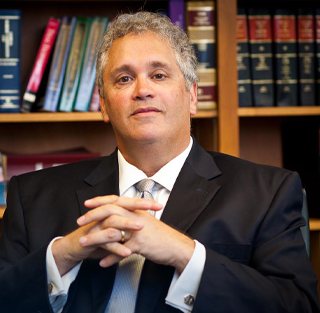Recovering Damages After the Death of a Loved One
The death of a loved one is never an easy topic to discuss — especially when the loved one died due to the wrongful actions of another party. Whether due to someone else’s intentional actions or a party’s negligence, the impact such a loss has on an individual’s loved ones can spur devastating emotional and financial consequences.
For family members who have lost a loved one due to the actions of another party, there may be damages recoverable from the party responsible. These damages typically come in two different forms: wrongful death and survival actions. While both can help compensate the loved ones of a deceased person, there are differences in both how and who can file each type of lawsuit in pursuit of recovering damages that hold the liable party responsible.
Read on to understand definitions for each type of damage, differences between how the action claims function, and essential factors for compensation in Georgia.
What Are Wrongful Death Cases?
According to O.C.G.A. § 51-4-2, wrongful death refers to an individual’s claim for the full value of the life of the decedent. The purpose of a wrongful death claim is to compensate the decedent for the full value of his or her life. Evaluation of damages in wrongful death cases have nothing to do with the death itself; rather, claims evaluated the full value of the life of the decedent, as shown by evidence.
A representative of the decedent may bring a claim for wrongful death. Representatives may include a surviving spouse or, if there is no surviving spouse, a child or children — either minor or of age. The individual who brings the claim does not have to have been physically harmed or even present at the time of death.
Further Reading: Your Guide to Suing For Wrongful Death In Georgia Civil Courts
What Are Survival Action Cases?
Survival action cases allow a representative to pursue financial recovery of a decedent’s losses before their death. One way to think of a survival action claim is as a continuation of what would have been the personal injury claim of the decedent had they survived; compensation may cover expenses due to death-medical bills, funeral expenses, as well as the value of the pain and suffering before death.
If a person has a will when they die, then the executor of the decedent’s estate may pursue a case on behalf of the estate. If the person does not have a will, then an administrator of the estate will need to be appointed to pursue this claim. The estate allows the decedent to survive beyond death.
How Does Wrongful Death Differ From Survival Actions?
While both wrongful death and survival actions can be brought to a court due to the same action, there are differences in both how and who can file each type of lawsuit in pursuit of recovering damages that hold the liable party responsible.
Compensation from a wrongful death claim is evaluated based on the full value of the life of the decedent, with damages unrelated to any expenses sustained following an incident or the decedent’s death. Meanwhile, damages from a survival action claim only compensate expenses from after the incident that led to a decedent’s death.
Additionally, the parties that can file each kind of lawsuit differ. Wrongful death is an individual’s claim, while survival actions are an estate’s claim. See generally OCGA §§ 51-4-2 (a); 51-4-5 (b); Complete Auto Transit v. Floyd, 214 Ga. 232 (2) (104 SE2d 208) (1958). Despite often representing the same party, the plaintiff in his individual capacity and in his capacity as administrator are legally different persons.
Interplay of Wrongful Death and Survivor Actions
Although distinct, wrongful death and survivor action claims often interplay. As distinct claims, family members of a deceased loved one can pursue damages and compensation on both accounts for the same case.
As an example, if a person is killed in a drunk driving accident, then a representative of the deceased may pursue a wrongful death claim. In tandem, if an estate is set up, then the executor or administrator may pursue a survival action claim for expenses related to the death and pursue the claim for pain and suffering. Sometimes a single person serves in both capacities, whereas in other cases there are two different people pursuing the claims.
Further Reading: What is Pain and Suffering and How Is Compensation Value Calculated?
Determining Value in Wrongful Death & Survival Action
In the wake of painful loss, determining the value of a deceased loved one is a difficult and extremely emotional task. However, there are a few means that will guide your attorney, judge and jury to a dollar amount — with different methods for both claims.
Value of Wrongful Death Damages
In the case of a wrongful death claim, the question is what is the full value of the life of the decedent, as shown by the evidence. This includes both economic and non-economic damages. Some of the factors to consider are the person’s age, his or her life expectancy, how much would they have earned over the course of their life, and non-economic damages like their standing in the community (their work in a soup kitchen or homeless shelter or manager of a little league baseball team).
Value of Survival Action Damages
Damages from a survival action claim look at what happened to the person while their life was in the process of ending. These cases look at the action that ended the decedent’s life as a part of the case. Variables considered include pain and suffering, cost of medical care between the initial injury and death, lost income between the injury and death, and funeral costs. All are taken into account as a manner of paying the estate of the deceased for their injury.
Who Pays for Damages in Wrongful Death & Survival Action Claims?
When dealing with either of these claims, parties involved may find it difficult to figure out where the money to pay a claim is going to come from. For the most part, damages are paid out through an insurance company. Take, for example, a car wreck or truck wreck case. Although there may be several layers of insurance to work through, the company pays for the damages. Whatever the case, loved ones have to figure out who is responsible so that all available funds are known, which will lead to the best possible financial outcome.
How Are the Damages Paid Out in Wrongful Death & Survival Action Claims?
As with many other aspects of these cases, there are distinct differences between the means in which wrongful death and survival action claims are paid out. The means of getting money to loved ones varies slightly between the two types of cases, and is directly related to which entities are pursuing the claim.
Wrongful Death Payouts
In a wrongful death suit, the money recovered will be distributed to the family according to intestate laws. Sometimes the only heir is a spouse; other times, there are also children of the decedent. Whatever the case, damages will be paid across surviving loved ones by merit of the law.
Survival Action Payouts
Damages paid out from a survival action claim do not go to any specific individual. Instead, any recovery is part of the estate. This means there may be creditors who are entitled to be paid; then, whatever is left over goes to the family according to intestate laws.
Further Reading: A Guide to Compensatory vs. Punitive Damages
Other Important Factors in Wrongful Death & Survival Action Claims
As with any lawsuit, damages from wrongful death and survival actions claims are never guaranteed, nor are they set to a specific dollar amount. There are a few key factors to consider when pursuing either claim.
Documentation is Critical
Keeping a record of all available information about the accident that led to a death, from the moment of injury to death, is essential to pursuing either one of the claims.This can include bills, doctors notes, and statements made by relevant individuals to the case. All of this is important to give a full accounting of what happened, how it happened, and how it has affected individuals — directly leading to how much a loved one is compensated.
Hire an Experienced Attorney
Another key to success for wrongful death & survival action claims is hiring an expert attorney. Experienced lawyers will walk you through every step of a case, and ensure you receive maximum compensation for the deceased. Additionally, any case involving the death of a loved one requires not just expertise, but empathy. Hiring an experienced attorney ensures your case will be treated with the sensitivity it deserves.
If you have lost a loved one due to the acts of another, you may be entitled to financial damages. To learn more about what compensation might be available, contact Apolinsky & Associates, LLC today to schedule your appointment.



